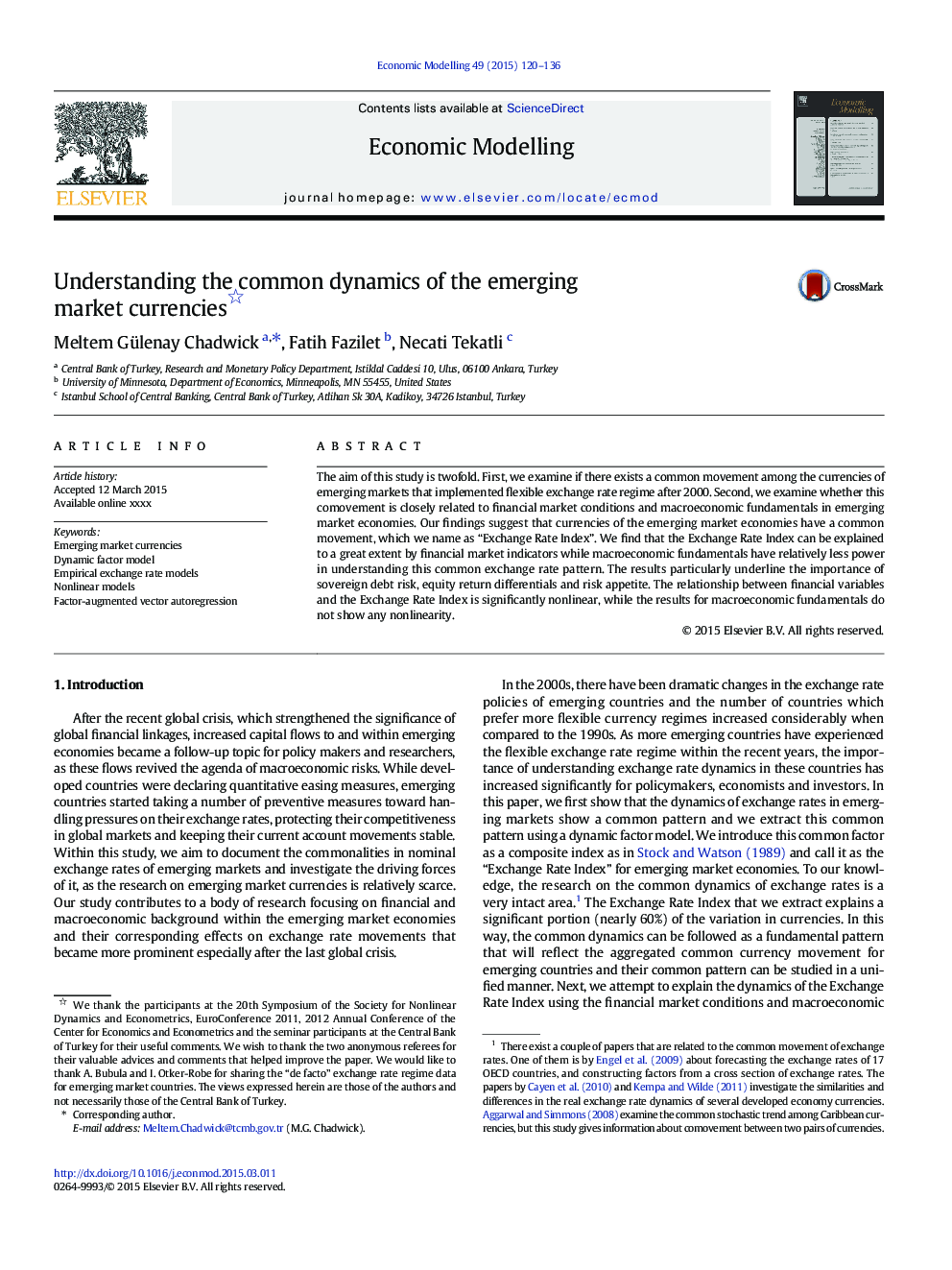| Article ID | Journal | Published Year | Pages | File Type |
|---|---|---|---|---|
| 5053816 | Economic Modelling | 2015 | 17 Pages |
Abstract
The aim of this study is twofold. First, we examine if there exists a common movement among the currencies of emerging markets that implemented flexible exchange rate regime after 2000. Second, we examine whether this comovement is closely related to financial market conditions and macroeconomic fundamentals in emerging market economies. Our findings suggest that currencies of the emerging market economies have a common movement, which we name as “Exchange Rate Index”. We find that the Exchange Rate Index can be explained to a great extent by financial market indicators while macroeconomic fundamentals have relatively less power in understanding this common exchange rate pattern. The results particularly underline the importance of sovereign debt risk, equity return differentials and risk appetite. The relationship between financial variables and the Exchange Rate Index is significantly nonlinear, while the results for macroeconomic fundamentals do not show any nonlinearity.
Keywords
Related Topics
Social Sciences and Humanities
Economics, Econometrics and Finance
Economics and Econometrics
Authors
Meltem Gülenay Chadwick, Fatih Fazilet, Necati Tekatli,
